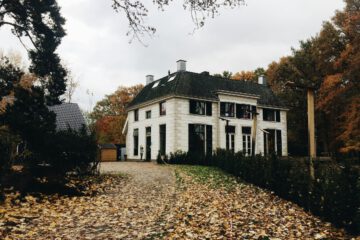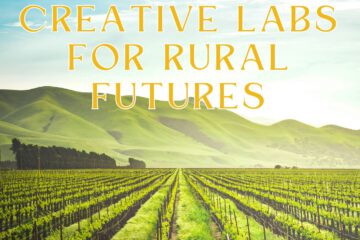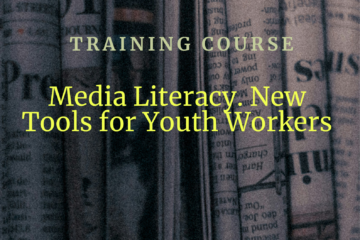Part 2: The reviews
In the first article, you had the chance to get to know more about Ticket2Europe’s first youth exchange – in a factual way. Now let us be more emotional and focus more on the feelings we have with it.
In Ticket2Europe, as a hosting team, we are very happy to say that the project was a great success! It was a great success not only because of the million smiles we’ve been (still) receiving from our participants, not only because of the very positive feedback we’ve been given, not only because of the results we saw at the last day, but because of the change that some of our participants have gone through. Many reviews we’ve received say that due to the project they are more aware of the topic now, they consider social exclusion a bigger issue than before, and most importantly they are more willing to take actions and fight, in a way, for peace & social inclusion.
Marilen Kiole (Greece), Kendi Balázs (Hungary), Nikolas Giannakidis (Greece), and Andre Figueiredo Garcia (Germany), 4 participants of the exchange have been volunteered to be interviewed by us and to respond to some of our questions in a really open & honest way. Here you go the outcome:
1.) What did you learn during the youth exchange?
Marilen: «I learned a lot of human experience. Some people shared with me their own stories. And I think that now we raise awareness as Janis tried over time. In general, I think I want to be more active in our society.”
Balázs: „During the YE I learned about the migrant situation from different perspectives. Like every people from different countries, they told us their situation and hearing this not from the mass media is really a good experience because you see it from a totally different perspective. We also learned how to work in teams I mean really efficiently I would say and how to approach people during the campaign and how to make the campaign actually.”
Niko: „I learned a lot of things! Because I was a team leader for the first time I learned a lot about leadership and organizing and taking care of others as well as my responsibilities. About the theme of the project, I learned that the issue with the refugees (and also migrants) in Europe is still at large when I thought it had died down. Talking with refugees about their lives so far and their hardships not only until they arrive at their destinations but also after their arrival (not being accepted by the society etc.) gave me a new perspective and made me conscious of issues that I wasn’t aware before (such as the ones I described earlier about social inclusion). I also learned about stuff that happened in my country (for example the situation at the borders) that I didn’t know about or I was ignoring. I also learned about some of the rules that the European Union has about who is considered a refugee, who’s asylum applications get accepted etc.”
Andre: „What I think I’ve learned is quite a few things and I am not sure that I am aware of all of them. I think we need some time to reflect on that to really understand what was learned. But I think what I appreciate most is just the environment that was given, therefore I would say I could improve my intercultural communication through the activities. Working with such an international, diverse team helped me a lot to learn how to engage with people, how to approach people in a proper manner. And create result otherwise it would not be possible because you start to appreciate and you start to use this diverse points of view and inputs that creates a wonderful result at the end.”
2.) How did your opinion changed about the issue of social exclusion – if changed?
Marilen: «I had also other experience with other youth exchange, so I was quite aware of the subject. My opinion didn’t change because of the project and also because I already had experience with the project.”
Balázs: „First I would like to mention that I was into deeply into the subject, so I didn’t know much about the migrant crisis, except the situation in Hungary mainly, and Germany. So hearing all the things from the Greek and Turkish people and even Spanish it changed my opinion a lot because I didn’t know how the migrants were treated in the camps and stuff. And after the human library, I emphasized very much with the migrants and it changed my opinion very much to positive about the entire crisis they have.”
Niko: „Before the project, I didn’t have any personal experiences, and not even a friend who had this experience, only I thought about it logically and thought about it as a bad thing. I was thinking very vagly. But after, especially the human library and the friend of one of organizers, who is from Syria and has migrated to Sweden, he told us about how things work and he had been through so much stuff, there were still problems while he was already in a safe country. We just have to talk to them and make them feel accepted – this is that really stayed with me.”
Andre: „I wouldn’t say that this youth exchange has changed my opinion on social inclusion. I’d rather say it strengthened the opinion that I had beforehand, which is that we need to act even far more than we’re actually doing, that there is a huge need of interacting different kind of parts of the society. So realizing this, just strengthened the opinion that I had. It’s quite powerful and inspiring to me.”
3.) Have you taken/are you planning to take any actions in order to change the general concept and opinion about the topic?
Marilen: «Yes. We already starting to organize actions here in Greece, with the other guys. We asked about the location and generally started to have action in this topic. We will go to the main square of Athens and to another place, a cultural foundation, and we will do a similar action as we did in Pontevedra. And after this, we are talking with our organization in Lesbos, and we want to join later to their actions during the summer.”
Balázs: „At home, I only told my friends about the youth exchange and the things I learned about migrants, but we are planning to do a demonstration in Budapest with the Hungarian team at the end of April.”
Niko: „Specifically only what we discussed and agreed on the last day of the project. Other than that I can’t tell anything specific yet, but I do want to volunteer and do something personally with the refugees. Maybe applying to some organizations. I have to do my researches. Now I think I want to give a try to be a volunteer.”
Andre: „The big plan is to continue creating awareness on the local level. Getting billboards and asking people questions on this sheet. Confronting people the issue that usually they don’t like to think about and make them reflect and think about things that they don’t want to think about. I think just creating this dialogue in this way, interviews for example, approaching people, probably is the best way to create awareness, because awareness is key in order to create social inclusion, or to make social inclusion effective.”
4.) Which part of the youth exchange lives the strongest in your memory?
Marilen: «I think the human library. And we had also some discussions with Nacho and Jens and I think it was really really strong as experience.”
Balázs: „I would like to mention few things. First is the human library, hearing all the stories from people who left a huge effect. Hearing their stories and actually almost sharing their feelings changed my opinion about the subject. And the second is the trip to Santiago. It was very funny, we had a lot of funny moments. Third is the campaign itself because putting the things in practice we learned it was huge thing for me.”
Niko: „Well. First thing that comes to my mind is that I was always with my notebook and taking notes and doodling… Once again I was taking some notes and preparing to some sessions, but the girls from my team were sitting next to me. They asked if they can take my notes, I asked „Why?”, they said, „You’ll see”. They wrote in my notebook that „You are the best leader we have had in years and we love you very much”.That was a moment when I felt very emotional and I felt I did a very good job for them.”
Andre: „Well the strongest memory that I have is definitely the human library when refugees from all part of the world came and sat with us and shared their stories on why they ended up in Spain, what forced them to leave their country. And how they feel, how they felt, how they feel and what they actually end up doing. What they plan to do, what their future looks like, what their wishes and hopes are. „
5.) What is the greatest value that you got out of this experience?
Marilen: «It is difficult to respond. To be patient and solidarity. Human power.”
Balázs: „The greatest value I got from this experience is learning to appreciate what I have. Because seeing and working with all these people who don’t even have the basic things or don’t know the basic things like writing or reading, it made me realize that the things that we take for granted other people around the world are missing.”
Niko: „It is probably a lot of values. One of them is teamwork. Because we had like one day, less than 24 hours to prepare and find things to do about the campaigning in the city of Pontevedra. First I thought that we probably not gonna make it. But we all worked together, everybody had ideas, there was cooperation, there was discussion. It was amazing, I was really amazed by the outcome. Generally, I am the person who workes alone. But this time I understand that it was something I could not have done alone because it required teamwork. And the outcome was amazing, and it exceeded my expectations. With teamwork, you can do more than you would imagine on your own. It was only my second youth exchange I’ve done but way way better, than the first.”
Andre: „And all of these things end up, well, inspiring. This is the thing that I value the most. The connection it created between the people that actually are in my situation and people who have that totally other perception, totally different standpoint in this world, in our society, in European Union society. I think that the most valuable thing was the connection that was created. This connection that we usually don’t have when we watch news, or we read a book or an article. The connection is created when actually you really see someone in front of you sharing a story and starting to cry. When you see the emotions, when you hear the emotions, when you feel the emotions. So breaking these walls, this distance – I think this was the key.”
As a closing of these beautiful thoughts, we would like to grab the opportunity to say thank you to Marilen, Balázs, Niko and Andre for having found time to respond to our questions.


